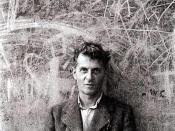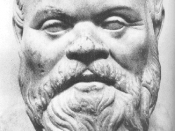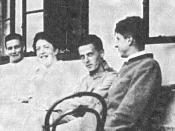Wittgenstein's Concept of a Language Game Do you know who set off at an early age to revolutionize modern philosophy by examining its most core component: our language and His life is considered in three distinct periods, each of which correspond to his philosophical standing at the time. In this essay, I will analyse the philosophical investigations of Ludvig Wittgenstein. I will analyse three of them.
First of all, number 11."Think of the tools in a tool-box: there is a hammer, pliers, a saw, a screw-driver, a ruler, a glue-pot, glue, nails and screw.---The functions of words are as diverse as the functions of these objects. (And in both cases there are similarities.) Of course, what confuses us is the uniform appearance of words when we hear them spoken or meet them in script and print. For their application is not presented to us so clearly. Especially when we are doing philosophy!"(74, Wittgenstein) Such an understanding would be as superficial as learning that all the objects in the toolbox were "tools" but not knowing any of their different functions Look at the words on this page.
Don't they look alike? They look so much more like each other than they look like your computer or your television. This is what confuses us. If philosophers want to talk about ordinary language then they need to pay some attention to how it is used rather than inferring prescriptions from philosophical theories. Wittgenstein certainly looked closer. Wittgenstein gives us tools for understanding the way our conversations construct our psychological reality, capture our imagination, confuse us and dispel our confusions.
14. " Imagine someone's saying: "All tools serve to modify something. Thus the hammer modifies the position of the nail, the saw the shape of the board, and so on."---And what is modified...


